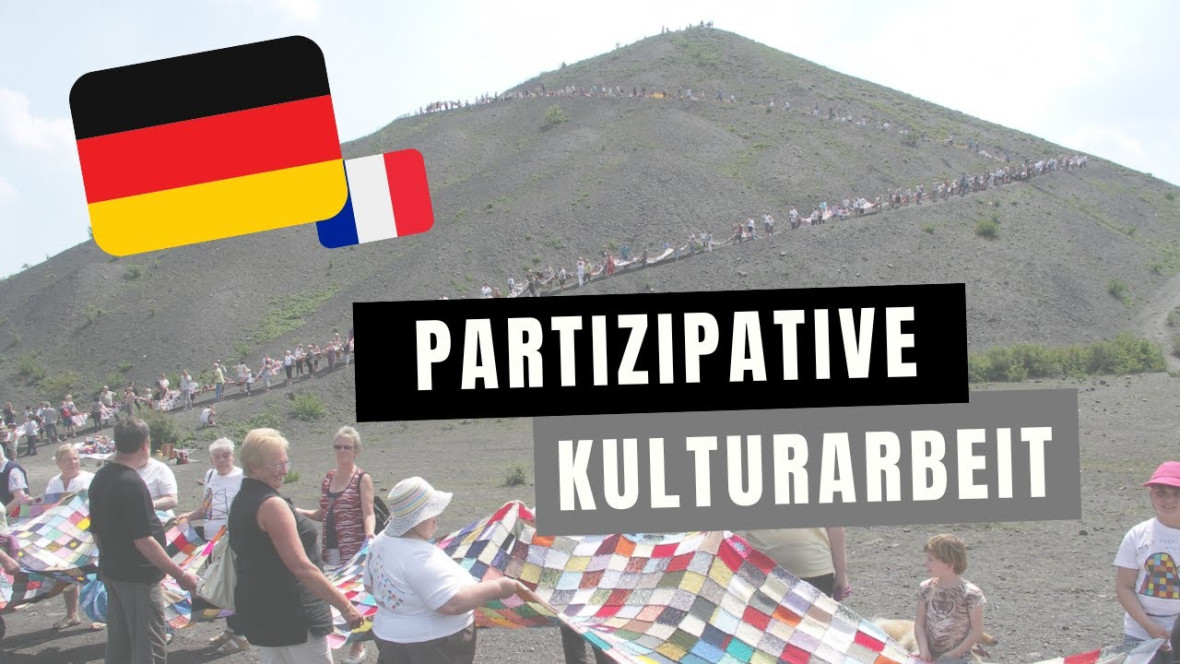Cooperation for the Heat Transition
25.10.2023
The recently launched third cycle of the Franco-German Forum for the Future – “Plan, Refurbish, Reduce” – will explore projects working to promote the heat transition in towns in Germany and France. In this work cycle, which runs through to late 2024, the project will develop recommendations for action that will shape national policies in both countries. Cooperation between the new participating towns, cities, and districts kicked off with a meeting in Berlin on 18-19 October 2023.
Franco-German Forum for the Future Begins Third Work Cycle
How can the municipal heat transition succeed in Germany and France? The Franco-German Forum for the Future will tackle this question over next 18 months. The project was established under the 2019 Treaty of Aachen and is tasked with strengthening Franco-German dialogue on major social and environmental transformations such as sustainable urban development and the heat transition. Local authorities in both Germany and France face enormous challenges: How can municipalities in Germany meet the demands of the Buildings Energy Act? How can local authorities in France support households seeking to make their properties more energy efficient? And what can be done to increase the share of renewable energies in the heat supply on both sides of the Rhine?
Getting to know each other: Kick-off meeting in Berlin
Over the course of the two-day kick-off meeting held at Stadtwerkstatt Berlin and the Federal Ministry of Education and Research (BMBF), the project’s partners – primarily practitioners from local government bodies – got to know each other. The meeting was also attended by representatives from the German municipalities of Göttingen, Greifswald, Hagenow-Land and Hoort, Munich, Chemnitz, Ludwigsburg and Lörrach, as well as Brest, Lyon, Metz and Pau in France. Participants outlined various measures and projects undertaken in their towns to promote the heat transition and discussed the challenges ahead: What will it take to ensure that the heat transition is both sustainable and fair? What constraints do municipalities face? What funding and support is available? And: what are the levers and prerequisites for success? Three thematic workshops were also held, laying the groundwork for future cooperation in this cycle with a focus on municipal heating planning, energy-efficient building refurbishment, and the increased utilization of renewable energies.
In the coming months, the project partners will undertake an in-depth review of their experiences across a wide range of local projects. Project partners from Brest, for example, will report on the development of a renewable energy storage tower and the introduction of a district heating network, Lyon on ambitious climate neutrality goals and programmes for citizen participation, Lörrach on its pilot project for inter-municipal heat planning, and Chemnitz on the possibilities of integrated neighbourhood development.
From local perspectives to national recommendations
The project partners will engage in a process of intensive dialogue and research in order to gain a better understanding of conditions on the ground, enabling participants to develop new ways of tackling structural challenges in both countries. Guided by a steering committee of experts from public administration, civil society and academia, participants will engage in a process of analysis and visionary dialogue to develop recommendations for policymakers at the state and federal levels of both countries, which will be subsequently presented to the governments of Germany and France.
In previous work cycles, the Forum for the Future has tackled issues such as accessing finance for municipal climate measures and promoting sustainable diets.
The Forum’s recommendations for action and content published on YouTube combine local experience with national perspectives to drive ecological transformation processes in both countries. The cooperation pioneered within the framework of the Franco-German Forum for the Future harnesses practical experience and involvement in local processes to support the work of the German and French governments.
Media
DFZW Video

Further information
- Website: https://df-zukunftswerk.eu/
- YouTube
- Twitter / X: https://twitter.com/pour_forum
The Franco-German Forum for the Future was established in 2019 under Article 22 of the Treaty of Aachen with the aim of advancing processes of societal transformation in the two countries. The Forum brings together stakeholders and relevant actors from civil society, politics, business and academia from Germany and France.
Drawing on the experiences of local actors and intensive dialogue, the Franco-German Forum for the Future sheds light on ecological, social, societal and economic challenges in order to develop potential solutions through cooperation and make recommendations for policymakers in both countries.

